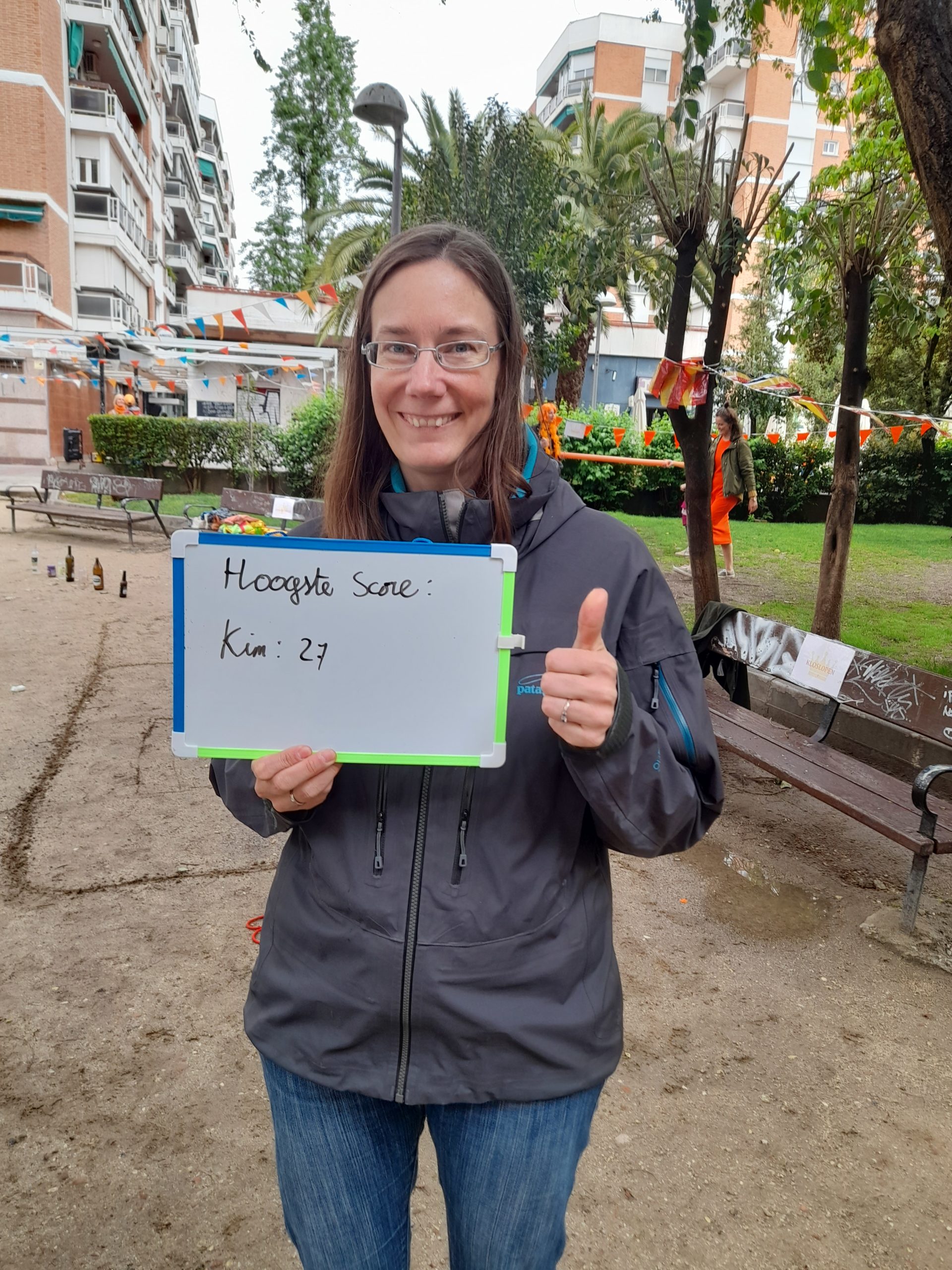Some of our families do not have a Dutch speaking parent at home. They have lived in the Netherlands or Belgium and have returned to Spain and would like their kids to keep up with their Dutch. This is extra complicated if there is no Dutch speaker at home. Kimberly (english speaking) and her spanish speaking husband have 3 kids and she shares her top tips about how to keep the Dutch present at home.
KEEP IT FUN
We try to keep Dutch as enjoyable as possible for the kids, and an integral part of life (vs. a “language to be learned,” i.e. a class).
MAINTAIN TIES WITH NL/BE
We maintain a link to the Netherlands. In our case, that looks like talking about our family heritage (my mom was born there/my grandparents immigrated to the US after WWII), still celebrating Sinterklaas at home (our kids watched the Sint Journaal every day last year), staying in contact with/exchanging photos with our friends where we used to live in the NL, and taking trips there if/when possible so that the kids can remain connected to it and remember that there is a whole society that speaks their third language.
 DUTCH TV/MOVIES
DUTCH TV/MOVIES
Since moving back to Spain from the NL we have let kids watch TV/movies almost exclusively in Dutch (so that it maintains a link to being fun). They also sometimes listen to Dutch kids’ songs (Juf Roos is my 3-yr-old’s favorite, and she has a little TV show too). Audio books are a good option too.
SQULA
Our kids have Squla accounts and view doing Squla as something fun–they ask to do it. We leave their use of it pretty open, which helps them view it as enjoyable. Our kids do it about once a week and all we do is set a time limit & tell them they can’t do the English section. I feel comfortable with it esp because the parent account lets you view exactly what they’ve done (though at this point I rarely bother), plus it’s an academic website made for children.
DRAW AND WRITE
When my eldest son was learning to read and write in Dutch during the pandemic, I used to take the woorden boekjes that we have and make drawings to match some of the words in the book, for him to then look for them and write the words next to the drawings, for him to practice associating how something was written with how it was pronounced in Dutch.
READING IN DUTCH
In our family we have cultivated a love of reading. We read with our kids every day (in English and Spanish), and we started doing this when our eldest son was 6 months old. Thanks to this, our kids view reading as something normal/positive and they read a lot (even our 3-yr-old, who just flips through books while his 6 & 9-yr-old brothers actually read), so we make a point of also making sure plenty of Dutch-language books are also available for the kids to pick up and read on their own (to the extent that they can read on their own). I also will, even with my less-than-perfect Dutch, occasionally read aloud in Dutch to our youngest son (I am also currently taking Dutch to try to improve my own Dutch, both because I want to improve to help the kids and as a bonus it shows them it is important).
DUTCH AU PAIR
Lastly, we have had a Dutch au pair (twice, so far). I got the idea of doing this after my 10-min gesprek with our middle son’s Dutch NTC teacher when he was about 4.5 yrs old. She said at that point that he still responded to everything she said to him in Dutch, but that he didn’t speak it back to her very often. I have studied linguistics and I knew the language window for children to really acquire language in a native way closes around age 6, so I thought it was basically “now or never” to consolidate the language for him. After having our first au pair with us for 9 months, through when my middle son was about 5.5 (he is now 6.5), his Dutch was vastly improved, he could speak and conjugate again, and now we have had a second au pair with us for 5 months (she’ll be here for 6 months total), and it has helped my older two sons maintain and improve their Dutch, and my younger son to reactivate the Dutch that was already in his head thanks to our first au pair. I should clarify that our kids know that they are not allowed to speak to our au pair in any language other than Dutch, even though they hear her interact with my husband and myself in Spanish and in English (this mimics the way we have done it with them since they were tiny, English with Mama, Spanish with Papa, always–we will provide words for them if they lack them or cannot think of them, but I have never permitted our kids to speak to me outright in Spanish, nor has my husband allowed them to speak to him in English). Our kids spend probably around 20hrs a week with an au pair (each one of them as an individual, sometimes one on one, sometimes multiple kids with her simultaneously)–she works 25-30hrs/week (usually 25). It is, of course, a sacrifice of space and privacy, as well as a budget commitment, but for the time being we consider it worth it for the kids’ Dutch language skills, as we have seen how effective it is.

